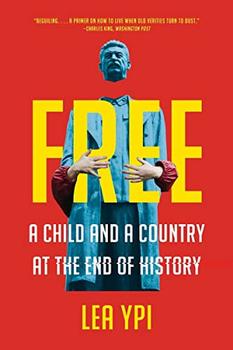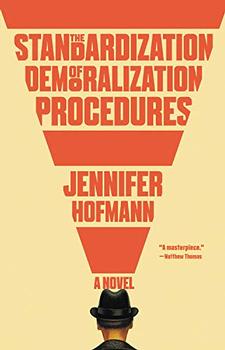Summary | Excerpt | Reviews | Beyond the book | Read-Alikes | Genres & Themes | Author Bio

A Memoir
by Rob SpillmanIn this absorbing memoir, co-founder of Tin House magazine, Rob Spillman, recalls his artistic coming of age bookended by periods in Berlin, first as a child reeling from the separation of his parents, and then in his early twenties on the eve of German Reunification.
He begins with immediacy in the chaos of East Berlin in 1989 where he and his wife Elissa Schappell, also a Tin House co-founder, attend a rave in an abandoned subway station beneath the crumbling Wall. From there the book is off like a shot as Spillman describes his unconventional youth with two classical musician parents and very little stability, "playing quietly under pianos." Moving wherever the work took them, his separated parents pass Spillman back and forth seasonally, from Berlin to Rochester and Aspen with his father, to Lynchburg, Virginia and Baltimore with his mother.
Spillman's adolescence is marked by the discovery of New Wave and punk music and drinking and driving, and also the realization of his father's homosexuality and thus a new understanding of his parents' split. He stirringly recalls his first punk show as a transcendent experience bordering on religious, "a stout Catholic meal of individual and collective rage." Perceiving himself a misfit at his Catholic high school, Spillman admits to his own adolescent essentialism – viewing others as stock characters or "types" without depth – that prohibited him from casting a wider social net. Once he learns to knit together disparate groups of people, he stumbles upon a breakthrough: "that my creativity might lie in assemblage." This capacity to gather art would make Spillman a star editor and Tin House a major literary establishment. As a further display of this talent for "assemblage," Spillman introduces each chapter with quotes by famous musicians and thinkers and a suggested soundtrack, acknowledging his influences and providing readers with an eclectic mix tape.
Interspersed with the account of his youth are chapters taking place in East Berlin where revolution is in full swing. Spillman and Schappell, both young, idealistic writers, frequent abandoned buildings repurposed as bars and meeting places for political fringe groups and pick through the discarded vintage furniture littering the streets. While military police and roving bands of skinheads are mentioned, Spillman does not romanticize or sensationalize the situation, painting an accurate and vivid portrait of a society in confused transition. This is played out to tragicomic effect when the couple, seeing no alternative, seek to have their clothes cleaned at an industrial laundry facility. Spillman's attempt to explain the concept of "'fluff and fold'" to the proprietors is met with utter bafflement.
The final chapters go back in time to Spillman's arrival in New York after dropping out of college and his courtship of Elissa, a deftly executed bit of plotting and a further window into the dynamics of the relationship. Both are bohemians at heart with an impetuous streak, which explains their willingness to take a jaunt into the pandemonium of Berlin a few years later.
Spillman captures the rawness of youthful artistic ambition eloquently and self-consciously, the "amplified emotions you only feel in your twenties, when you are wildly changeable." His seeking of authenticity and creative fulfillment, from latching on to early influences like Hunter Thompson to his disappointment in the debauched literary culture of 1980s New York, make for a melancholy but ultimately redemptive journey. He relates without embarrassment charmingly naive statements like "[East Berlin] is ground zero in the battle between commodification and artistic utopia." Elissa is the perfect foil to Spillman's idealistic enthusiasm, appreciative but practical, and his awestruck feelings for her are patently adorable. He is charmingly naive, attempting to boost her flagging morale with assertions like, "[East Berlin] is ground zero in the battle between commodification and artistic utopia." She is the sensible skeptic, wryly noting the East Berliners' open clamoring for Western influence, "They're excited about bananas. They're throwing out Bauhaus furniture."
Spillman's story is about breaking away from a youth of "chasing past versions of bohemia and artistic revolutions" to become a sharp editor, champion of great literature, and with this book, a talented author in his own right. It is also a dual love story, between a man and his wife and a man and his chosen homeland. As these two loves become incompatible, Spillman, the lifelong nomad, finds peace in redefining "home" as a feeling rather than a fixed location.
![]() This review was originally published in The BookBrowse Review in April 2016, and has been updated for the
February 2017 edition.
Click here to go to this issue.
This review was originally published in The BookBrowse Review in April 2016, and has been updated for the
February 2017 edition.
Click here to go to this issue.

If you liked All Tomorrow's Parties, try these:

by Lea Ypi
Published 2022
A reflection on "freedom" in a dramatic, beautifully written memoir of the end of Communism in the Balkans. Longlisted for the 2021 Baillie Gifford Prize for Non-Fiction.

The Standardization of Demoralization Procedures
by Jennifer Hofmann
Published 2020
An audacious debut that combines spycraft, betrayals, and reversals to show that sometimes it's the secret that destroys you.
In youth we run into difficulties. In old age difficulties run into us
Click Here to find out who said this, as well as discovering other famous literary quotes!
Your guide toexceptional books
BookBrowse seeks out and recommends the best in contemporary fiction and nonfiction—books that not only engage and entertain but also deepen our understanding of ourselves and the world around us.